All Stories
-
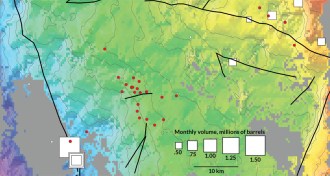 Earth
EarthOklahoma earthquakes triggered by wastewater injection
Dumping wastewater from the oil and gas industry into disposal wells may have set off swarm of earthquakes in Oklahoma.
By Meghan Rosen -
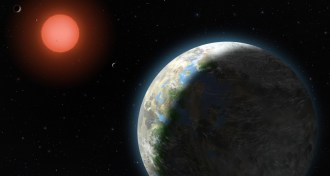 Astronomy
AstronomyExoplanets once trumpeted as life-friendly may not exist
Two exoplanets considered among the most promising for hosting life may not exist, a new study suggests.
By Andrew Grant -
 Psychology
PsychologyPeople will take pain over being left alone with their thoughts
Evidence suggests that people dislike solitary thought so much that some prefer electric shocks.
By Bruce Bower -
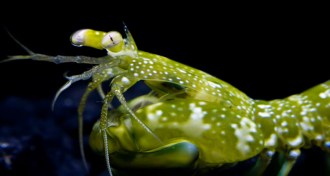 Animals
AnimalsMantis shrimp tune their eyes with sunscreen
Blocking some rays in just the right way creates six ways of actually seeing ultraviolet light.
-
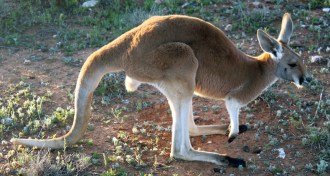 Animals
AnimalsRed kangaroo’s tail acts like a fifth leg
Red kangaroos wield their tails like another limb when moving slowly.
-
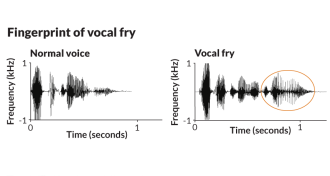 Psychology
PsychologyVocal fry
At the lowest registers of the human voice, a creaky, popping sound known as vocal fry emerges.
-
 Math
MathScientists’ grasp of confidence intervals doesn’t inspire confidence
Confidence intervals are often misrepresented and are commonly misunderstood, even by researchers.
-
 Health & Medicine
Health & MedicineSupercooling makes livers for transplants last longer
Supercooling a rat liver for transplant greatly increased an organ’s survival time outside the body, potentially opening the door for global allocation of human organs.
By Nsikan Akpan -
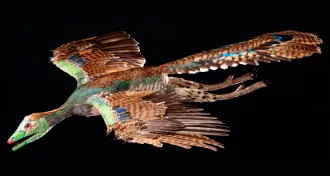 Paleontology
PaleontologyFlightless dino-bird wore full-body feathers
Recently unearthed Archaeopteryx fossil sports full coat of feathers, suggesting feather evolution was more complex than previously thought.
-
 Health & Medicine
Health & MedicineCandidate asthma and allergy drug passes early test
By suppressing an inflammation-causing antibody, an experimental drug can lessen allergy and asthma symptoms for months at a time.
-
 Neuroscience
NeuroscienceAutism may carry a benefit: a buffer against Alzheimer’s
Brain plasticity of people with autism may protect them from Alzheimer’s disease, scientists propose.
-
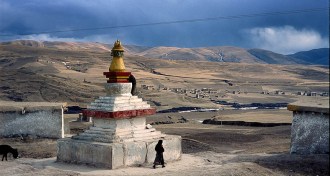 Life
LifeTibetans live high life thanks to extinct human relatives
DNA shared by modern-day Tibetans and extinct Denisovans suggests people picked up helpful genes through interbreeding with other hominids.